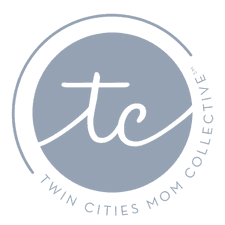{Disclosure: We are thrilled to partner with Children’s Hospitals and Clinics of Minnesota to share helpful information about early childhood development for children ages zero to three. A host of additional early childhood resources are available on the Children’s website.}
My first-born child was a preschool prodigy. Ok maybe not. But thanks to my diligent employment of flashcards, activity books, and copious amount of time spent together reading stories, she knew all of her letters, numbers, shapes and colors by age two. She was reading by age four. And she devoured a biography of Marie Antionette by age six, resulting in a completely non age-appropriate conversation about guillotines.
Four kids later, I’ve dialed back the enthusiasm for flashcards and academic activities. I think this is due to a combination of the inherent chaos of raising four kids and a realization that not all children are ready to develop focused academic skills by age four.
Take, for example, my youngest. He has always been highly coordinated and has an uncanny ability to decipher how everything is made by disassembling my furniture. He was pretty apathetic towards all things academic throughout his preschool years. And no matter how many times I pointed out letters, shapes and colors, nothing seemed to stick.


I can’t tell you how many conversations we had that went like this:
Me: Hey buddy, what letter is this? (Pointing to an A)
Ty: A circle!
Me: Nope, its an A. Ok lets do shapes. What shape is this? (Pointing to a square)
Ty: An X!
Me: Um, lets just skip this game for now.
That’s not to say he didn’t show promise. After all, he could pick a lock by age three. So I was assured that at a minimum he would make a fine burglar some day.

This spring I was called to set up my son’s Kindergarten screening appointment. I told the receptionist that I wasn’t sure how I felt about kindergarten screening given the variability of child development in this age group. She reassured me that the purpose was only to make sure that my child didn’t have any drastic deficits, “You know, we just want to be sure he can write his name and stuff.”
I silently cringed. And I had to stop myself from snapping, “Lady, this kid can barely hold a pencil.”
The day of the appointment came and I ushered my son into the kindergarten room with the teacher. He smiled cheerfully, took her hand and confidently wandered off for his assessment. I was shown into a waiting room and sat for what felt like an eternity, nervously tapping my finger on the desk. I couldn’t imagine what manner of deficiencies in my parenting were being unearthed in the other room. And frankly, I didn’t want to know.
But when the assessment was over and the teacher walked him back to me, she was beaming. Her first remark was, “He has such an incredible vocabulary.”
I was stunned. This child is not doubt intelligent, but I guess I didn’t notice anything remarkable about his vocabulary given how much of my time with him is spent reminding him he can’t unscrew the table or harping at him to get down off the counter tops.
But even though I was surprised, it slowly dawned on me that of course he would have a decent vocabulary.
Though I backed off on pointedly academic activities over the years, I never shirked on reading lots and lots of books with my kids. And this busy boy has always loved to settle in next to mommy and listen with rapt attention to any book I read.

I was thrilled to see such tangible fruit of our family’s practice of consistently reading to our children from birth.
I can also be confident that the benefits of reading extend far beyond vocabulary.
Language Development – Research overwhelmingly demonstrates that kids whose parents consistently read to them have higher vocabularies than those who are not. But children who are read to also learn syntax, sentence structure, sound awareness, and voice inflection. Plus kids are digesting loads of information about history, culture, science and relationships simply by doing an activity they are hard wired to enjoy – listening to stories. These benefits begin at birth and continue throughout childhood so start early and read often.
Brain Development – The American Academy of Pediatrics cites studies that demonstrate reading with children actually impacts the biological brain. One study used functional MRI imaging to examine children’s brains in real time while stories were read. The results demonstrated that children from literature-rich homes showed greater activity in brain areas supporting narrative comprehension and visual imagery while the story was being read.
Check out this great resource to get you started: Creating a Reader-Friendly Home
Strong Parent-Child Attachment – Reading together encourages interaction and fosters nurturing relationships between parent and child. Plus, a child’s social-emotional development and sense of security is enhanced when seated with a parent or trusted caregiver listening to his or her voice.
I made reading part of nap and bedtime routine because once it becomes their expectation it made it nearly impossible for me to skip it. However, There are lots of great times to read to the kids.
A reading specialist once told me I should read at least six books every day to my kids so I shoot for at least that number. It is a relief to know my little burglar has a firm language foundation on which to build as he enters kindergarten. And I plan to keep on reading to him for years to come.

We all know Children’s Hospitals and Clinics of MN to be an incredible leader in healthcare, but they also have a wealth of resources to help you guide your child into the potential they already hold within them. You ARE your child’s greatest tool in learning and this month, we’re sharing a number of experiences from our team alongside the incredible amount of resources offered by Children’s Minnesota. Find more information on the Children’s website.



